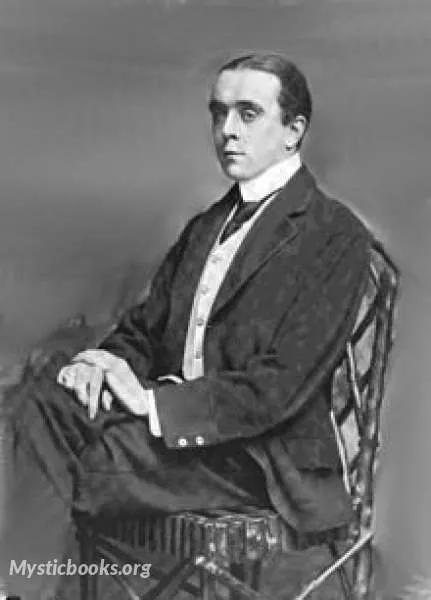
Timeline
Title
Country/Nationality
Max Beerbohm
Sir Henry Maximilian "Max" Beerbohm was an English essayist, parodist and caricaturist under the signature Max. He first became known in the 1890s as a dandy and a humorist. He was the drama critic for the Saturday Review from 1898 until 1910, when he relocated to Rapallo, Italy. In his later years he was popular for his occasional radio broadcasts. Among his best-known works is his only novel, Zuleika Dobson, published in 1911. His caricatures, drawn usually in pen or pencil with muted watercolour tinting, are in many public collections.
Born in 57 Palace Gardens Terrace, London which is now marked with a blue plaque, Henry Maximilian Beerbohm was the youngest of nine children of a Lithuanian-born grain merchant, Julius Ewald Edward Beerbohm (1811–1892).
Beerbohm was educated at Charterhouse School and Merton College, Oxford, from 1890, where he was Secretary of the Myrmidon Club. It was at school that he began writing. While at Oxford Beerbohm became acquainted with Oscar Wilde and his circle through his half-brother, Herbert Beerbohm Tree. In 1893 he met William Rothenstein, who introduced him to Aubrey Beardsley and other members of the literary and artistic circle connected with The Bodley Head. Though he was an unenthusiastic student academically, Beerbohm became a well-known figure in Oxford social circles. He also began submitting articles and caricatures to London publications, which were met enthusiastically. "I was a modest, good-humored boy", he recalled. "It was Oxford that has made me insufferable." In March 1893 he submitted an article on Oscar Wilde to the Anglo-American Times under the pen name "An American". Later in 1893 his essay "The Incomparable Beauty of Modern Dress" was published in the Oxford journal The Spirit Lamp by its editor, Lord Alfred Douglas.
By 1894, having developed his personality as a dandy and humorist, and already a rising star in English letters, he left Oxford without a degree. His A Defence of Cosmetics (The Pervasion of Rouge) appeared in the first edition of The Yellow Book in 1894, his friend Aubrey Beardsley being art editor at the time. At this time Wilde said of him, "The gods have bestowed on Max the gift of perpetual old age."
In 1895 Beerbohm went to the United States for several months as secretary to his half-brother Herbert Beerbohm Tree's theatrical company. He was fired when he spent far too many hours polishing the business correspondence. There he became engaged to Grace Conover, an American actress in the company, a relationship that lasted several years.
In the 1890s, while a student at Oxford University, Beerbohm showed great skill at observant figure sketching. His usual style of single-figure caricatures on formalised groupings, drawn in pen or pencil with delicately applied watercolour tinting, was established by 1896 and flourished until about 1930. In contrast to the heavier artistic style of the Punch tradition, he showed a lightness of touch and simplicity of line. Beerbohm's career as a professional caricaturist began when he was twenty: in 1892 The Strand Magazine published thirty-six of his drawings of 'Club Types'. Their publication dealt, Beerbohm said, "a great, an almost mortal blow to my modesty". The first public exhibition of his caricatures was as part of a group show at the Fine Art Society in 1896; his first one-man show at the Carfax Gallery in 1901. Explaining his system for caricature, Beerbohm wrote: "The whole man must be melted down in a crucible and then, from the solution, fashioned anew. Nothing will be lost but no particle will be as it was before." He concluded: "The most perfect caricature is that which, on a small surface, with the simplest means, most accurately exaggerates, to the highest point, the peculiarities of a human being, at his most characteristic moment, in the most beautiful manner."
Beerbohm married the actress Florence Kahn in 1910. There has been speculation that he was a non-active homosexual (Malcolm Muggeridge, who much disliked him, imputed homosexuality to him), that his marriage was never consummated, that he was a "natural celibate" or even just asexual. David Cecil wrote that, "though he showed no moral disapproval of homosexuality, [Beerbohm] was not disposed to it himself; on the contrary he looked upon it as a great misfortune to be avoided if possible." Cecil quotes a letter from Beerbohm to Oscar Wilde's friend Robert Ross in which he asks Ross to keep Reggie Turner from the clutches of Lord Alfred Douglas, "I really think Reg is at a rather crucial point of his career – and should hate to see him fall an entire victim to the love that dare not tell its name." The fact is that not much is known of Beerbohm's private life.
He died at the Villa Chiara, a private hospital in Rapallo, Italy, aged 83, shortly after marrying his former secretary and companion, Elisabeth Jungmann. Beerbohm was cremated in Genoa and his ashes were interred in the crypt of St. Paul's Cathedral, London, on 29 June 1956.
Books by Max Beerbohm
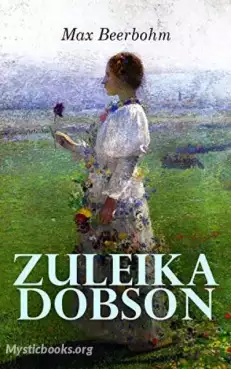
Zuleika Dobson
T Zuleika Dobson, full title Zuleika Dobson, or, an Oxford love story, is the only novel by Max Beerbohm, a satire of undergraduate life at Oxford published in 1911. It includes the famous line "Death cancels all engagements" and presents a corrosive...
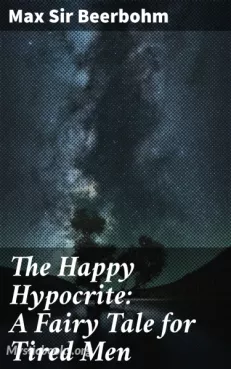
The Happy Hypocrite: A Fairy Tale For Tired Men
In the heart of a whimsical and enigmatic world, where masks conceal secrets and pretense reigns supreme, lies "The Happy Hypocrite: A Fairy Tale For Tired Men" by the masterful Max Beerbohm. Enter a realm where truth dances with deception, and the l...
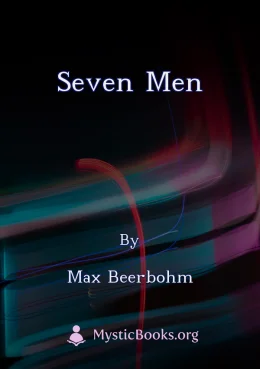
Seven Men
Seven Men is a collection of fictional biographies written by Max Beerbohm. It satirizes the literary world of late Victorian England by creating six imaginary writers, each with their own exaggerated and humorous personalities and literary styles. T...
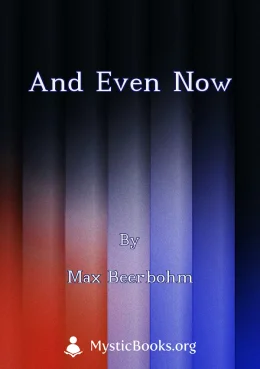
And Even Now
This collection of essays by Max Beerbohm delves into a wide range of topics, showcasing his wit and insightful observations. Beerbohm, known for his humorous parodies of upper-class life, explores themes that range from the amusing to the poignant....
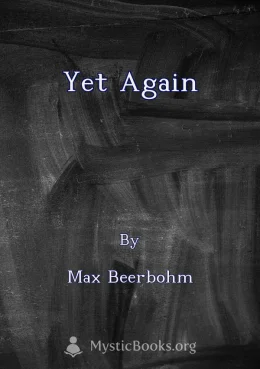
Yet Again
Max Beerbohm's 'Yet Again' is a collection of essays exploring diverse themes and styles. Beerbohm, a renowned English writer and artist, delves into topics such as the idiosyncrasies of the House of Commons, the works of impressionist painter James...